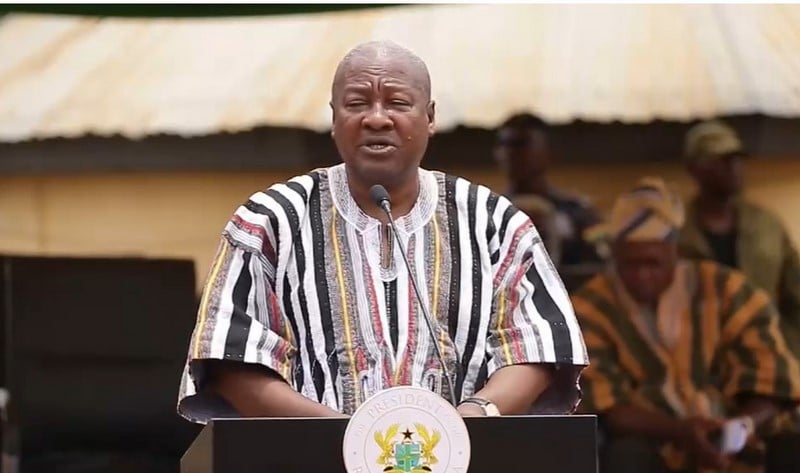President John Dramani Mahama, during the 2025 May Day celebrations in Accra, addressed growing public anxiety surrounding the potential privatization of the Electricity Company of Ghana (ECG). He emphatically reassured Ghanaians that his administration would not privatize the vital utility company, instead prioritizing its revitalization and reinforcement within the public sector. Mahama acknowledged the precarious financial situation of ECG, burdened by a massive debt of 68 billion Ghana cedis, and attributed this primarily to years of mismanagement and weak governance. He stressed the urgency of addressing these issues to prevent a collapse of the entire power sector, emphasizing that tariff reductions are contingent upon enhancing the efficiency of power distribution.
Mahama’s strategy for revitalizing ECG centers on fostering robust public-private partnerships rather than outright privatization. He argued that this collaborative approach would inject much-needed efficiency into the electricity distribution sector while maintaining public ownership. He contrasted this approach with the previous eight years, which he characterized as a period of poor governance that contributed significantly to ECG’s current financial woes. The President’s message aimed to allay public fears and offer a concrete path towards a more sustainable and efficient power sector. He emphasized the importance of ECG’s role within the broader energy landscape and reaffirmed his commitment to strengthening public institutions.
The President’s assurance reflects a broader policy stance prioritizing the strengthening of the public sector, recognizing its pivotal role in national development. By focusing on enhanced public-private partnerships, Mahama aims to leverage the expertise and resources of the private sector while safeguarding the interests of the public. This strategy seeks to strike a balance between efficiency and public ownership, ensuring that essential services like electricity distribution remain accessible and affordable for all Ghanaians. The proposed approach signifies a commitment to finding innovative solutions to complex challenges, rather than resorting to drastic measures like privatization.
The accumulation of ECG’s substantial debt underscores the long-standing managerial and financial challenges plaguing the utility company. Mahama pointedly attributed this burden to years of ineffective governance, suggesting a need for significant restructuring and reform within the institution. Addressing this debt and improving ECG’s financial health is crucial for ensuring the long-term sustainability of the power sector. The President’s focus on improved governance and strategic partnerships highlights his commitment to addressing the root causes of ECG’s struggles, rather than merely treating the symptoms.
The proposed public-private partnerships represent a strategic approach to modernizing and strengthening ECG without relinquishing public control. By collaborating with private entities, ECG can potentially access technical expertise, financial resources, and innovative management practices that can improve its operational efficiency. This collaborative model allows for shared responsibility and risk management, while also ensuring public accountability and transparency. The President’s emphasis on this approach reflects a belief in the potential of synergistic partnerships to drive progress and deliver tangible benefits to the public.
In conclusion, President Mahama’s address aimed to reassure the public about the future of ECG, emphasizing his commitment to strengthening the public sector and improving the efficiency of electricity distribution. His proposed strategy of enhanced public-private partnerships offers a viable alternative to privatization, aiming to address the root causes of ECG’s financial distress while maintaining public ownership. The President’s commitment to improved governance and strategic collaboration signals a proactive approach to tackling the challenges facing the power sector and ensuring a sustainable and affordable electricity supply for all Ghanaians. His message underscored the importance of public trust and transparency in addressing complex national issues, emphasizing the government’s role in safeguarding the interests of the public.


